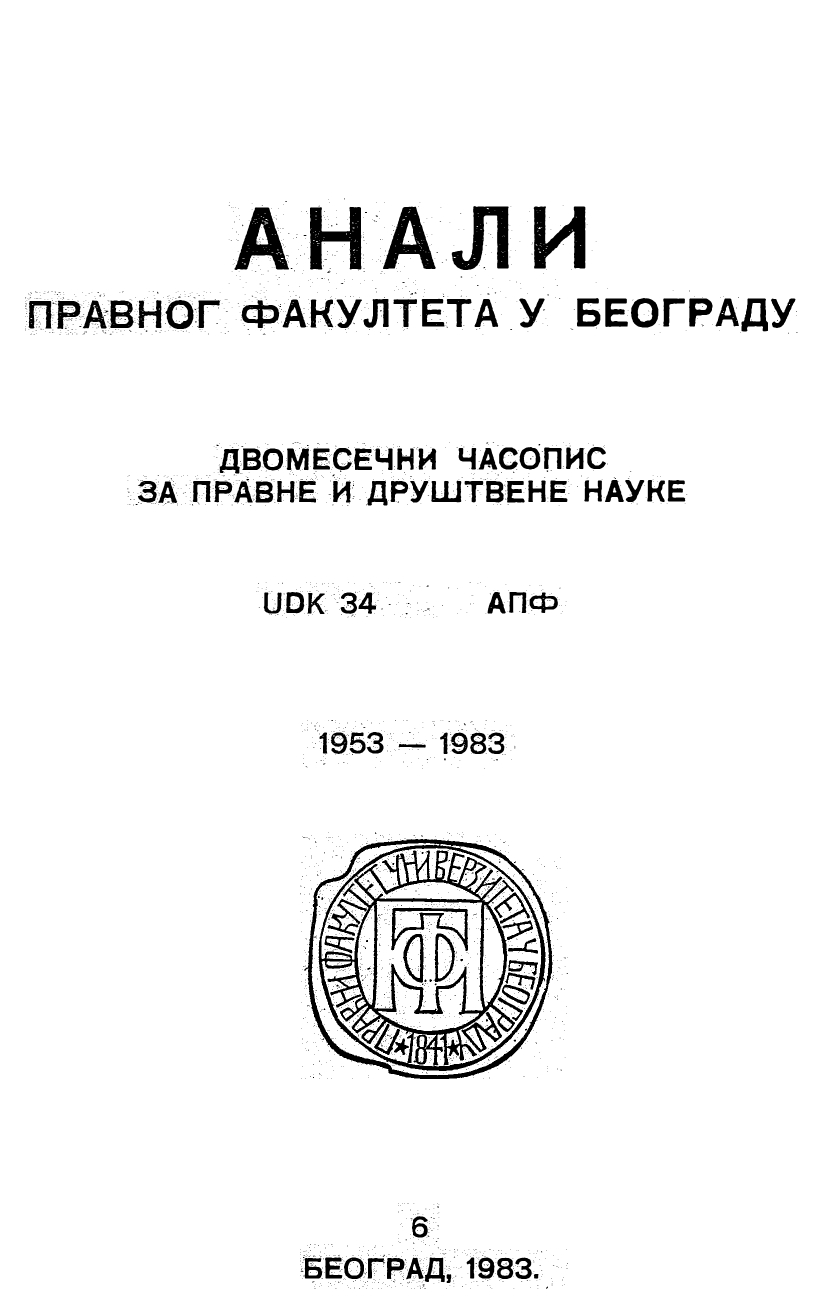СВОЈИНА И ЊЕНИ ДЕРИВАТИ У СТАРОМ ЕГИПТУ
OWNERSHIP AND INTERESTS IN PROPERTY IN OLD EGYPTIAN LAW
Author(s): Aristid TeodoridesContributor(s): Obrad Stanojević (Translator)
Subject(s): Law, Constitution, Jurisprudence, History of Law
Published by: Правни факултет Универзитета у Београду
Summary/Abstract: The paper is a Serbo-Croatian translation of the author’s communication to the International congress of legal historians on the Law of Antiquity (Trieste 1977), published in RIDA, 1977. vol. XXIV. The author, who is one of the leading experts in the field of the old Egyptian law, showed that some of our ideas about the old Egyptian law were wrong. Analysing certain documents (especially papyrus Kahoun 1,1 and papyrus Berlin 9010) the author proved that the old Egyptian law was familiar with the notion of ownership („Pharaon said that every man i should dispose of his goods”), as well as that the ownership could be restricted either by legal provisions or a contract. A sort of mortmain existed in the old Egyptian law, the consequence of which was the institution of „ounemou-ensebinenef”, an easement in favour of a person with a religious charge. It was possible to make gifts by conditioned conveyances („may my son serve me as as stick in my old days”). Opposing certain interpretations (e.g. those of Karin-Berbara Goedicken), the author is of opinion, that the separation of interests in property was possible, e.g. the separation of obligation and revenue, as the papyrus of Kahoun VII,1 shows, where the eldest son was obligated, while the house and furniture were granted to other sons.
Journal: Анали Правног факултета у Београду
- Issue Year: 31/1983
- Issue No: 6
- Page Range: 1003-1021
- Page Count: 19
- Language: Serbian

